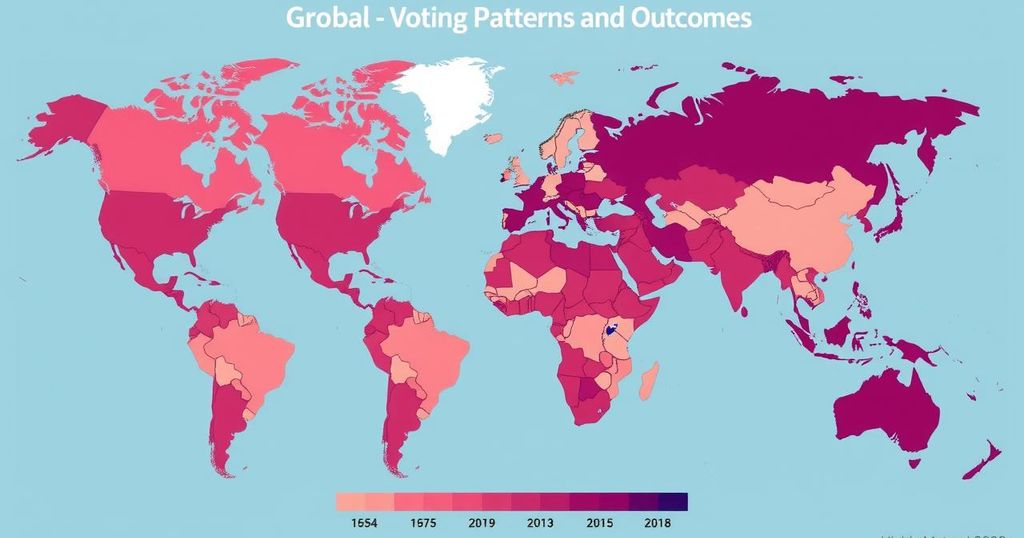Global Election Results of 2024: Trends in Voter Engagement and Leadership Changes

In 2024, elections occurred in over 70 countries, with varying voter turnout and results. Notable events included Donald Trump’s victory in the U.S. and Narendra Modi’s BJP forming a coalition in India. Rwanda saw a record voter turnout, while lower participation characterized votes in Tunisia and Iran. Several incumbents were re-elected, while new leaders emerged in countries like Mexico and Austria. The overall trends highlighted shifting public attitudes towards governance and the electoral process globally.
In 2024, elections took place in over 70 countries worldwide, encompassing a population of approximately four billion people, half of the global populace. Noteworthy voting events included the EU parliamentary elections involving 27 member states. High-profile elections occurred in populous nations such as India, the United States, Indonesia, Pakistan, and Bangladesh, with voter turnout averaging 61%. India’s elections saw 637.4 million voters, while the U.S. experienced a divisive election leading to Donald Trump’s victory. Notable returns of incumbents included leaders from Algeria and Rwanda, whereas several new leaders emerged, such as Austria’s Freedom Party and Mexico’s Claudia Sheinbaum. Global elections demonstrated diverse political dynamics, with varying voter participation and outcomes across different nations.
The electoral landscape revealed trends of reduced majorities for incumbents and unexpected shifts in power, indicating a changing attitude among electorates. In a significant turn, Bangladesh’s Prime Minister, Sheikh Hasina, resigned following widespread protests, while Syria’s Bashar al-Assad lost power after a long civil conflict.
The 2024 global elections illustrated the diverse political climate across nations, highlighting the unique circumstances and voter sentiments. Countries with a history of turbulent politics, like Tunisia and Iran, faced low turnout rates, contrasting sharply with Rwanda’s record participation. These elections were pivotal, reflecting not only the power dynamics within each nation but also the global trends of governance, incumbency, and the willingness of populations to express dissent through the electoral process. Key political figures such as Narendra Modi and Donald Trump faced distinct challenges, with Modi losing the majority whilst still forming a coalition, and Trump reclaiming the presidency amid a polarized American electorate. These events signaled shifting public opinions and a reevaluation of political leadership in various regions.
In conclusion, the 2024 elections worldwide demonstrated a complex interplay between voter engagement, political incumbency, and emerging leadership. The results from various nations revealed notable shifts, with some leaders re-elected amidst reduced majority support while others faced dramatic turns in their political fortunes. The elections acted as a barometer for public sentiment, reflecting aspirations, dissatisfaction, and calls for change in governance, underscoring the evolving political landscapes across the globe. The turnout figures and electoral outcomes serve as indicators of the challenges and opportunities that lie ahead for leaders and electorates alike.
Original Source: www.aljazeera.com







